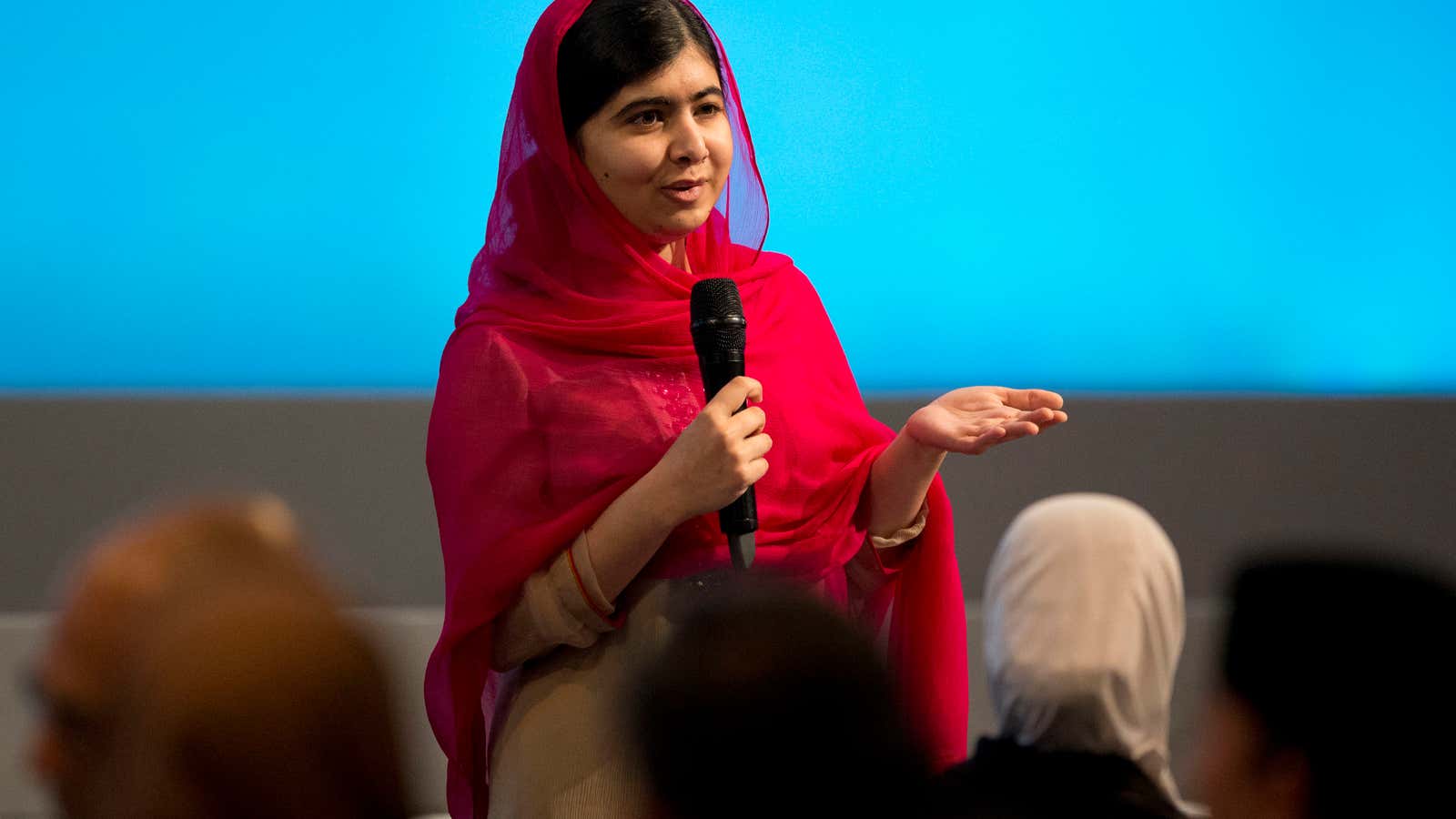On average, what does the most admirable man in the world look like? According to Americans, he’s white, in his late sixties, an American born to white American parents, straight, and a present or former US president.
The most admirable woman, however, is somewhat more diverse. She might run a country, but she’s as likely to be a judge, or an activist. (In fact, she probably has her own television show.) She’s nearly a decade younger than her male counterpart. There’s some overlap—she’s probably white, straight, and born on American soil—but she’s much more likely to be none of those things than the same man.
Since 1946, the polling organization Gallup has asked Americans each year to name the man and woman living anywhere in the world today whom they most admire. This year, according to the organization, was one of only 13 in 72 annual polls in which the current president was not top of the rankings. Instead, Michelle and Barack Obama, the former US first lady and president, both came out on top. If Donald Trump is not named America’s most admired man next year, or the one after it, he will be the second president never to take the number one spot.
Most admired man, with percentage of votes
Barack Obama 19
Donald Trump 13
George W. Bush 2
Pope Francis 2
Bill Gates 1
Bernie Sanders 1
Bill Clinton 1
Dalai Lama 1
Joe Biden 1
Elon Musk 1
Mike Pence 1
Most admired woman, with percentage of votes
Michelle Obama 15
Oprah Winfrey 5
Hillary Clinton 4
Melania Trump 4
Queen Elizabeth 2
Angela Merkel 2
Ruth Bader Ginsburg 2
Ellen DeGeneres 2
Nikki Haley 1
Malala Yousafzai 1
Nancy Pelosi 1
Let’s break down these lists.
Among women, there’s diversity of almost every kind—professional background, ethnicity, nationality, sexuality, and age. Of the top eleven, four are women of color. One woman is LGBT. Just three are American politicians who have held elected office, with two Democrats and one Republican. One woman is the head of a church and state (Queen Elizabeth); another is a student and activist (Malala Yousafzai); one is a judge; two are entertainers and businesswomen.
There’s just one state leader on the list, along with three First Ladies. Three are not Americans; of the Americans, one is an immigrant, and another the daughter of immigrants. The youngest person on the list is 21, while the oldest is 92, with a range of 71 years. The average age of these women is just over 60.
The men make for a much more homogenous group, however. Two are men of color; seven are present or former American politicians. (Of that seven, three are Republicans, three are Democrats, and one is Independent. Only one has never been president.) Two are technology entrepreneurs. Two are religious leaders; the same two are not Americans. The youngest person on the list is Elon Musk, at 47, while the oldest person, at 83, is the Dalai Lama, with a range of 36 years. Two have been publicly accused of sexual assault or harassment (both are US presidents.) The average age of these men is about 69. The list does not feature any immigrants or LGBT men.
Quartz charted how the survey results have changed over the years. Some people, such as Oprah Winfrey and Michelle Obama, have been constants for a decade and remain right up at the height of American esteem. Others, like Hillary and Bill Clintons, seem to be on their way out of the rankings. (Gallup attributes Hillary Clinton’s falling star to her move away from public life.)
What does this say about what it means to succeed as a woman? With so little data, it’s hard to extrapolate anything very concrete. But one takeaway might be that Americans recognize successful, admirable women come in all different shapes and sizes—and that it’s exciting to see a 21-year-old Pakistani activist in the company of a 92-year-old British royal. You might also welcome the racial diversity of the list, or wonder why there aren’t more LGBT women there. (You might also be wondering how long it’ll take to get a US female president in the running, or when women are better represented as heads of countries and corporations alike.)
Among the list of men, you might worry about the 18% accused of sexual assault or harassment, and what that says about admirable male traits. You might wonder why the list has no immigrants, or whether LGBT men are getting their due. Perhaps it’s also worth considering, for future years, the incredible array of options of men who haven’t at some point attempted to be US presidents—what there is to admire among men who have devoted their lives to philanthropy, science or the law, rather than the pursuit of power.
